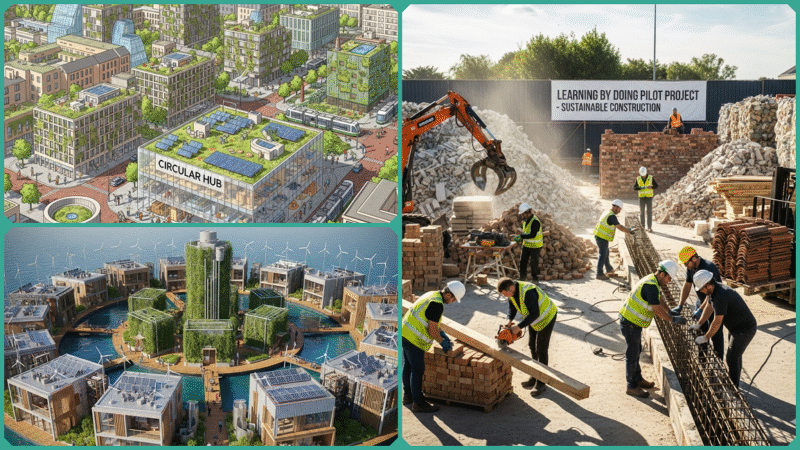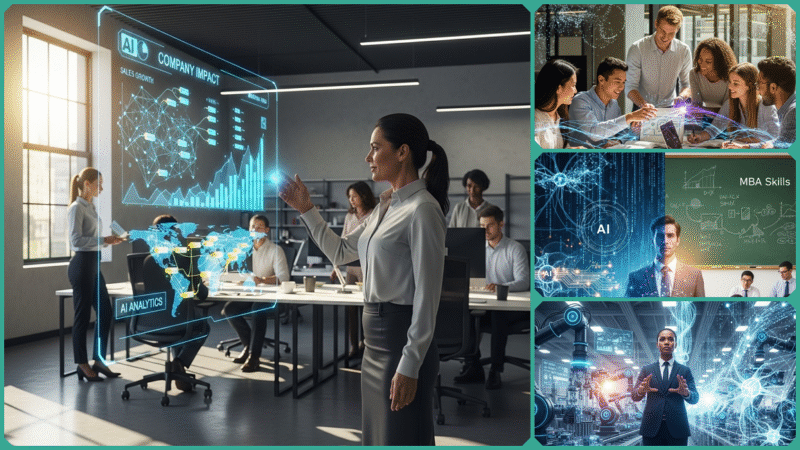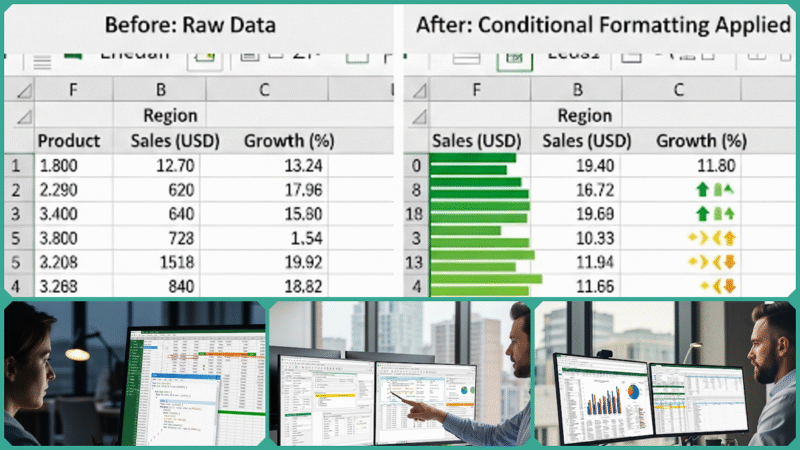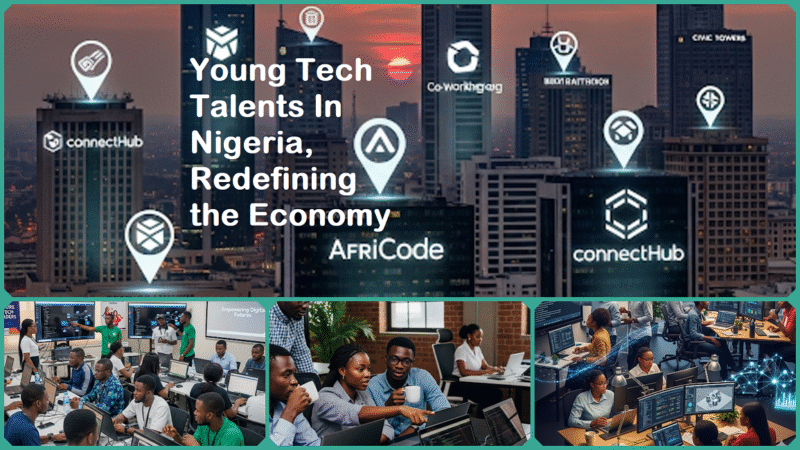The Future of Urban Planning Careers with the AI Revolution
Estimated reading time: 16 minutes
The traditional role of the urban planner is evolving rapidly with the advent of the AI revolution. Advanced algorithms now analyze vast amounts of data, generate diverse design alternatives, and predict outcomes with unprecedented speed and precision. Urban planning careers are at a critical crossroads as AI reshapes the field. For professionals and students in urban planning, geospatial technology (GIS), architecture, engineering, and public policy, embracing AI is essential—not as a challenge to fear, but as a powerful catalyst for innovation, growth, and improved community outcomes. This technological leap has left many in the industry wondering:
What does this mean for my career?
Is my expertise becoming obsolete?
The answer is no, but your role is about to change dramatically. This post is for every professional who wants to move beyond the fear of automation and embrace the future of their craft. We’ll break down how AI is transforming core urban planning functions and, most importantly, provide a clear guide on the new skills and mindset required to lead this technological transformation.
Importance and Impact of AI in Urban Planning
The integration of AI into urban planning is critically important for multiple reasons to directly tackle the growing complexity of urban environments and the expanding role of urban planners. With rising urban populations and escalating challenges—such as;
- Traffic Congestion
- Resource Allocation
- Environmental Sustainability
- Social Equity
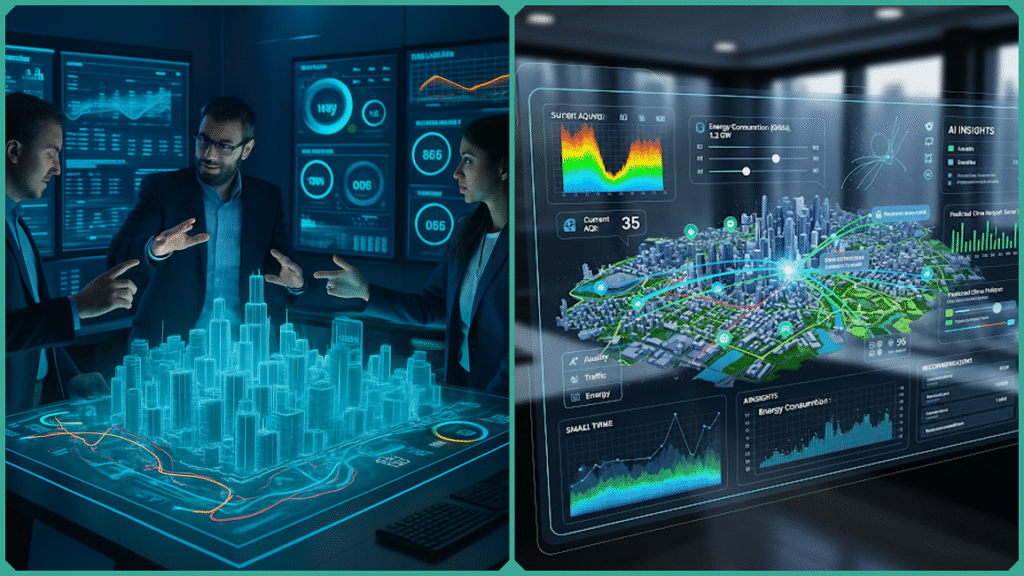
The traditional planning approaches have proven inadequate in responsiveness and efficiency. AI’s promise lies in its ability to analyze vast and diverse datasets, simulate complex scenarios, and optimize urban systems, enabling planners to design smarter, more sustainable cities tailored to contemporary and future needs.
This AI evolution is crucial for current and aspiring urban planning professionals. By understanding and embracing AI’s transformative potential, they prepare themselves for changing roles that require new interdisciplinary skills, ranging from data science literacy to ethical governance of AI technologies.
The integration of AI also elevates planners to leadership positions in shaping urban futures, where they do not just respond to change but actively harness technology to create more livable, resilient communities.
This significance is supported by recent research and practical implementations, which demonstrate how AI tools assist in zoning scenario simulations, predictive analytics for traffic and population growth, the enhancement of public participation through AI-driven engagement platforms, and digital twins for real-time city modeling.
Such applications not only optimize land use and infrastructure but also promote sustainability and social inclusivity. For example, AI can automate compliance checks against building codes to accelerate approvals while ensuring safety and equity.
Overall, AI in urban planning is more than a technological upgrade; it represents a paradigm shift that empowers planners with advanced tools to meet 21st-century urban challenges. Embracing this integration positions professionals to innovate, advocate for the responsible use of AI, and lead the development of cities that are more adaptable to ecological limits and human needs.
Key Concepts and Theories in AI and Urban Planning Career
The intersection of artificial intelligence and urban planning is where data-driven insights meet human-centered design. To navigate this evolving landscape, professionals must grasp the core concepts of both fields.
This section will explore the fundamental theories and technologies that are reshaping urban development, from predictive modeling and machine learning to the ethical frameworks that govern their application in our cities.
AI as a Planning Tool, Not a Replacement
AI is widely recognized as an exceptionally powerful tool specifically designed to significantly augment the expertise and capabilities of urban planners rather than completely replace their essential roles. While AI excels at efficiently processing vast and complex datasets, identifying intricate patterns, and generating accurate data-driven predictions, the actual planning decisions still require uniquely human qualities such as nuanced judgment, creative problem-solving, and ethical reasoning.
Within this important framework, urban planners act as strategic overseers who thoughtfully leverage AI’s impressive computational strengths to greatly enhance planning outcomes, rather than fully surrendering their decision-making authority or relinquishing control over critical aspects of the planning process.
Machine Learning and Predictive Analytics
Machine learning (ML) algorithms are central to AI’s role in urban planning. These algorithms analyze historical and real-time data—covering traffic flows, land use patterns, demographic shifts, and environmental conditions—to forecast urban trends such as growth, congestion, or pollution levels. For example, ML models can predict urban expansion by incorporating variables like infrastructure, population density, and socio-economic indicators.
This predictive capacity enables planners to simulate multiple development scenarios and make more informed, evidence-based decisions. Deep learning, a subset of ML, has shown particular promise in handling complex spatial data, offering enhanced accuracy over traditional urban growth models.
Digital Twins
Digital twins are at the forefront of advanced AI applications, offering real-time virtual replicas of entire cities that seamlessly integrate data from various sensors, geographic information systems (GIS), and sophisticated AI analytics. These highly dynamic and interactive models enable urban planners and decision-makers to simulate, analyze, and predict the effects of different interventions, infrastructure modifications, and emergency response strategies within a completely risk-free digital environment.
By utilizing these detailed simulations, cities can significantly enhance their resilience and operational efficiency, as the digital twins provide continuous, real-time feedback on the performance and behavior of complex urban systems over time.
AI-Enhanced Public Participation
Advanced AI tools, including large language models and other sophisticated technologies, significantly improve public engagement by analyzing and synthesizing extensive community feedback collected across multiple languages, dialects, and various communication formats.
These innovative tools facilitate meaningful dialogue and interaction between urban planners and residents, efficiently summarizing diverse public input to support more inclusive, transparent, and collaborative decision-making processes.
AI-driven platforms are capable of detecting emerging trends in public sentiments, concerns, and priorities within vast and complex datasets, enabling planners to better understand and address the evolving needs and preferences of the community more effectively and responsively.
In Summary
AI in urban planning revolves around several core concepts that are transforming the way cities are designed and managed.
- First, AI serves as an empowering assistant to human planners, providing them with enhanced analytical capabilities and supporting more informed decision-making processes.
- Second, machine learning techniques are utilized to generate predictive insights, allowing planners to anticipate future trends, challenges, and opportunities with greater accuracy.
- Third, the use of digital twins—highly detailed, real-time virtual models of urban environments—enables continuous monitoring and simulation of city dynamics.
- Finally, AI-driven tools significantly enhance public participation by facilitating more inclusive, accessible, and interactive engagement between citizens and planners.
Together, these frameworks not only improve the precision and efficiency of urban planning but also encourage collaborative, ethical, and adaptive approaches to sustainable urban development.
Current Trends and Developments in AI and Urban Planning Careers
Artificial intelligence isn’t just a future concept for urban planners; it’s a rapidly evolving part of the job. From new software tools to shifting job responsibilities, the field is undergoing a fundamental change. Let’s highlight the most significant trends and developments, showing how AI is being used to tackle some of the biggest challenges cities face today and shaping the skill sets of tomorrow’s urban planners.
Automation of Routine Tasks
AI has progressively taken over many labor-intensive and repetitive tasks in the field of urban planning, including activities like scanning and evaluating planning applications, verifying compliance with zoning and environmental regulations, performing data entry, and conducting basic spatial analyses.
This growing automation not only accelerates workflows but also helps to minimize human error, enabling planners to shift their attention away from routine tasks toward addressing higher-value, more complex challenges that demand creativity, deep policy understanding, and ethical judgment.
For instance, several municipal councils now utilize AI-driven systems that instantly scan and cross-check relevant legal and environmental policies during the application approval process, which significantly reduces delays and streamlines decision-making.
Optimized City Layouts and Resource Management
Advanced AI algorithms continuously analyze real-time data collected from extensive sensor networks and a wide array of Internet of Things (IoT) devices to significantly enhance the optimization of urban infrastructure and resource management systems.
This comprehensive approach includes improving traffic flow by implementing dynamic traffic signal adjustments that respond to current congestion levels, optimizing water and energy usage by closely monitoring consumption patterns, and efficiently managing waste disposal systems to reduce overflow and environmental hazards.
These sophisticated AI-driven optimizations play a crucial role in creating more sustainable urban environments by minimizing resource waste, lowering greenhouse gas emissions, and reducing overall environmental impacts.
Ultimately, this process leads to the development of smarter and more adaptive city layouts along with infrastructure systems that are designed to better meet the evolving needs of rapidly growing urban populations. At the same time, these improvements actively promote long-term ecological balance, ensuring that urban expansion occurs in harmony with the natural environment for sustainable future living.
A Growing Role for GIS Integration
Geospatial Information Systems (GIS), when combined with advanced Artificial Intelligence (AI) technologies, offer urban planners a highly powerful suite of tools for spatial analysis and predictive modeling capabilities. The integration of AI-enhanced GIS allows for the highly precise mapping of flood-prone and vulnerable areas, significantly improving disaster preparedness and response strategies.
Additionally, it helps identify underserved and marginalized neighborhoods that require critical healthcare facilities, educational infrastructure, and other essential services. This technology supports the equitable and efficient distribution of city resources and services across diverse urban populations.
By merging GIS with AI, urban planners gain a much deeper and more nuanced understanding of complex spatial dynamics, greatly enhancing their ability to design targeted interventions that truly respond to the unique and evolving needs of local communities.
Ethical and Equity Considerations
As artificial intelligence tools become increasingly integral and indispensable to the field of urban planning, planners hold a significant and crucial responsibility to ensure that the use of such advanced technology remains ethical and just.
AI models, if not carefully managed, can inadvertently perpetuate and amplify existing biases embedded in the datasets on which they are trained, potentially leading to outcomes that are unfair and inequitable for various communities. Urban planners serve as dedicated stewards who must conscientiously apply the principles of transparency, fairness, and accountability throughout the deployment of AI systems.
By doing so, they play a vital role in preventing the reinforcement or exacerbation of social inequalities that can arise from unchecked algorithmic decision-making. Responsible governance and ethical oversight of AI technologies are essential to fostering trust, promoting inclusivity, and ensuring equitable participation in urban development processes for all members of society.
Real-World Success Stories and Achievements Demonstrating Impact
- New York City employs advanced AI-powered computer vision technologies extensively to monitor the safety of pedestrian crosswalks throughout the city. These sophisticated systems are designed to prioritize maintenance and repairs in areas where they are needed the most, ensuring resources are allocated efficiently. As a result of this targeted approach, the safety outcomes for pedestrians have significantly improved, making the city’s streets safer for everyone who walks them.
- Mexico City utilizes advanced artificial intelligence technology to monitor and analyze informal transit systems, significantly improving the accessibility and overall efficiency of public transportation services. This innovative approach is designed to better serve underserved populations by providing more reliable, timely, and coordinated transit options, thereby enhancing the daily commuting experience for many residents who rely on these informal networks.
- Urban planning AI platforms have demonstrated the ability to significantly enhance the efficiency of the planning process, with improvements of up to 30% reported. These advancements not only help to reduce overall costs but also play a critical role in speeding up project delivery times across various major city departments. By integrating AI technologies, urban planners can streamline workflows, make more informed decisions, and ultimately bring projects to completion faster and more cost-effectively than traditional methods.
These recent developments demonstrate the profound ways in which artificial intelligence is transforming not only the technical and practical aspects of urban planning but also significantly influencing the broader career landscape.
This transformation is expanding the traditional roles of urban planners, pushing them toward becoming strategic thinkers, ethical decision-makers, and leaders who are highly skilled in navigating and leveraging advanced technologies.
Careers in urban planning today require a strong proficiency in using AI tools and data analytics, coupled with a commitment to responsible and innovative practices. This evolution is opening up exciting new pathways for professional growth and enabling planners to have a greater impact in designing and shaping cities that are resilient, inclusive, and sustainable for future generations.
Career Implications and Opportunities in Urban Planning with AI
Artificial intelligence is not just changing the tools of urban planning; it’s reshaping the very nature of the profession. This section outlines the specific career implications of the AI revolution, highlighting which tasks are most likely to be automated and, more importantly, revealing the new, high-demand opportunities and skill sets that will define a successful career in a data-driven world.
Changing Role of Urban Planners
The role of urban planners is rapidly evolving and expanding from their traditional focus on primarily handling data processing tasks to becoming sophisticated AI supervisors, interpreters, and strategic decision-makers.
Today’s urban planners must skillfully meld advanced technical AI literacy with deep and comprehensive urban expertise, alongside strong ethical oversight and highly developed collaboration skills. They are tasked with overseeing complex AI-driven analyses, ensuring that the outputs consistently align with important human values, and thoughtfully applying these valuable insights to address multifaceted urban planning challenges.
This significant shift transforms planners into master orchestrators who effectively leverage powerful AI tools to enhance urban outcomes, all while safeguarding principles of equitable access and sustainable development for diverse communities.
New Skill Requirements
To truly thrive and excel in the rapidly evolving AI-integrated urban planning landscape, professionals must actively acquire, develop, and deepen a diverse range of essential key competencies that are critical in this field:
- Data Science and Analytics: Essential for understanding, interpreting, and utilizing AI-generated data insights to inform planning decisions.
- Familiarity with AI Tools and Concepts: Knowledge of machine learning algorithms, digital twin technologies, drone-enabled data collection, and AI platforms used in smart city contexts.
- Ethical Frameworks: Guiding responsible AI use to prevent bias, ensure transparency, and uphold fairness in planning processes.
- Communication Skills: Enhancing engagement with diverse stakeholders through AI-powered platforms that facilitate public participation and collaborative decision-making.
Emerging Roles
The integration of AI technology significantly catalyzes the emergence of new and innovative professional roles within the field of urban planning careers, encompassing a diverse range of specialized positions such as:
- AI Algorithm Developers who customize models for urban system optimizations.
- Geospatial AI Modelers focusing on advanced spatial data analysis, combining GIS with machine learning.
- Urban Data Analysts specializing in extracting actionable insights from complex urban datasets.
- AI-Powered Public Engagement Coordinators who utilize AI tools to manage inclusive stakeholder involvement.
- AI Policy Advisors guiding ethical, legal, and governance frameworks around AI use in cities.
Career Growth and Innovation Potential
AI significantly empowers urban planners to take a leading role in pioneering projects that achieve notably superior outcomes in sustainability, resilience, and equity. By leveraging AI’s advanced predictive capabilities, planners are able to more accurately anticipate the complex impacts of climate change, optimize critical infrastructure investments for maximum efficiency, and design urban environments that are genuinely people-centric and responsive to community needs.
Professionals who master AI-driven tools and frameworks position themselves at the very forefront of the urban planning sector, unlocking a wide range of expanded career progression opportunities as well as gaining the potential to profoundly influence how cities evolve and transform in the face of rapid technological advances and shifting societal demands.
In Summary
This comprehensive career outlook is closely aligned with a wide range of specialized AI training programs, detailed market research reports, and targeted professional development initiatives. These resources collectively emphasize the crucial fusion of advanced AI skills with fundamental urban planning knowledge, aiming to equip professionals with the necessary tools to successfully future-proof their careers in this rapidly evolving and highly dynamic field.
FAQs
Will AI replace urban planners entirely?
AI will not replace urban planners but will transform their roles. Planners will supervise, interpret AI analyses, and focus on creative and ethical decision-making. AI serves as a powerful assistant that enhances efficiency and insight without substituting human judgment. Human expertise remains essential in overseeing AI and ensuring equitable, context-sensitive planning outcomes.
What AI tools should urban planners learn?
Urban planners should become proficient in machine learning platforms, GIS integrated with AI analytics, digital twin software for real-time city modeling, and AI-driven community engagement tools such as large language models for public participation. These tools enable planners to analyze complex data, simulate urban scenarios, and foster inclusive decision-making.
How does AI improve sustainability in urban planning?
AI enhances sustainability by enabling real-time data analysis and simulations that optimize resource usage (water, energy, waste), reduce pollution through efficient traffic management, design resilient infrastructure, and forecast environmental impacts like flooding or heat islands. This leads to smarter, environmentally sensitive urban designs.
How can urban planners influence AI usage?
Planners have a crucial role in ensuring AI is used transparently, ethically, and inclusively. They help design policies that address biases embedded in data, promote fairness, and prioritize vulnerable and underserved communities. Ethical oversight guarantees that AI deployments support equitable and sustainable urban development.
What educational paths support careers in AI-integrated urban planning?
Recommended paths include interdisciplinary studies combining urban planning with data science, artificial intelligence, ethics, and public policy. Continuous professional development focused on AI tools, analytics, and ethical frameworks is essential to stay current and effective in this evolving field.
In Conclusion
The AI revolution represents a transformative opportunity for urban planners rather than a threat. It empowers professionals in the field to design smarter, more sustainable, and equitable cities by complementing their expertise with powerful AI tools.
Embracing AI enables urban planners to unlock new career avenues, develop essential skills in data literacy and ethics, and lead innovative projects that address the pressing challenges of our time, such as climate resilience, resource optimization, and inclusive growth.
To thrive in this evolving landscape, urban planners must prepare themselves through continuous learning focused on AI technologies, ethical governance, and collaboration across disciplines and communities. By doing so, they position themselves as leaders in shaping the future of urban environments—harnessing AI’s potential to enhance human creativity and judgment in the pursuit of thriving, resilient, and inclusive cities.
This proactive approach ensures that urban planners remain indispensable agents of positive change, guiding cities through the complex dynamics of the 21st century with insight, responsibility, and innovation.
Discover more from Skill to Grow
Subscribe to get the latest posts sent to your email.

